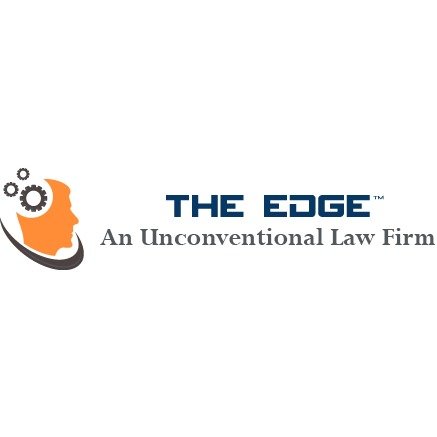Best Employer Lawyers in Beirut
Share your needs with us, get contacted by law firms.
Free. Takes 2 min.
List of the best lawyers in Beirut, Lebanon
About Employer Law in Beirut, Lebanon
Employer law in Beirut, Lebanon, is governed by a combination of Lebanese Labor Law, various decrees, and regulations. These laws oversee the rights and responsibilities of both employers and employees within the workplace. Covering a broad spectrum of topics from employment contracts and workplace safety to discrimination and termination of employment, employer law aims to foster a fair and productive work environment while protecting the interests of both parties. In Beirut, economic factors, cultural norms, and legal precedents can all play a role in how these laws are understood and applied.
Why You May Need a Lawyer
Legal expertise may be required in several situations related to employer law. Common scenarios include drafting or reviewing employment contracts to ensure fair terms, navigating disputes over wrongful termination or employment discrimination, handling workplace harassment claims, or seeking advice on compliance with labor regulations. Employers may also seek legal advice when dealing with mergers, layoffs, or downsizing to minimize legal risks and ensure adherence to local laws. A lawyer specializing in employer law can provide guidance, representation, and advocacy tailored to the specific needs of the situation.
Local Laws Overview
In Beirut, key aspects of local laws relevant to employers include the Lebanese Labor Law, which sets out fundamental rights and obligations regarding wages, working hours, overtime, and leave conditions. Employment contracts must be in writing and clarify essential terms of employment. The law also outlines conditions for probationary periods, disciplinary actions, and grounds for termination. Non-discrimination is a significant legal tenet, requiring policies to prevent workplace discrimination based on race, gender, religion, or other protected characteristics. Employers must also adhere to safety regulations to ensure a healthy work environment and provide necessary training and equipment.
Frequently Asked Questions
What are the basic rights of employees under Lebanese Labor Law?
Employees in Beirut are entitled to rights including fair pay, reasonable working hours, annual leave, and safe working conditions. Additionally, they are protected against discrimination and arbitrary termination.
Is an employment contract mandatory in Lebanon?
Yes, employment contracts are generally required and must clearly define the terms of employment including job duties, salary, working hours, and conditions for renewal and termination.
What constitutes wrongful termination in Beirut?
Wrongful termination occurs when an employee is dismissed without legal cause or without following due process as outlined in the employment contract or the Lebanese Labor Law.
How does one address workplace harassment in Beirut?
Victims of workplace harassment should report the issue to their employer or HR department. If the matter is not resolved internally, legal action can be taken by filing a complaint with the relevant authorities or seeking legal counsel.
Are employers required to provide severance pay?
Severance pay is generally required upon termination of employment without just cause, and its amount may depend on the length of service and terms outlined in the employment contract.
What is the process for resolving labor disputes in Beirut?
Labor disputes can be resolved through mediation, negotiation, or legal proceedings. Employers and employees may seek resolution through the Labor Arbitration Council or independent legal channels.
Can an employer enforce non-compete clauses?
Non-compete clauses are enforceable if they are reasonable in scope, duration, and geographical area. They must not unfairly restrict the employee's ability to find new employment.
What are the obligations of employers regarding health and safety?
Employers must provide a safe working environment, implement safety protocols, and comply with health and safety regulations, including providing necessary protective equipment and training.
Is it mandatory for employers to provide maternity leave?
Yes, employers are required to provide maternity leave of a minimum period stipulated by Lebanese Labor Law, ensuring job protection and salary continuation during the leave.
How are working hours regulated in Lebanon?
Standard working hours are regulated, typically not exceeding 48 hours per week. Overtime must be compensated at a premium rate as specified by law.
Additional Resources
For further assistance, consider reaching out to the following resources:
- The Ministry of Labor: Offers guidance on labor laws and regulations.
- The Lebanese Bar Association: Can assist in locating a qualified employment lawyer.
- Local labor unions: Provide support and advocacy for workers' rights.
- Legal aid organizations: Offer free or low-cost legal services for those who qualify.
Next Steps
If you need legal assistance regarding employer-related issues, consider the following steps:
- Gather all relevant documents, such as contracts, correspondence, and evidence of the issue.
- Research and consult with a lawyer specializing in employment law to understand your rights and options.
- Explore mediation or arbitration services if applicable, for resolving disputes outside of court.
- Follow up with any legal advice or action required, while keeping detailed records of all communications and proceedings.
Taking these steps can help you navigate the complexities of employer law in Beirut, ensuring your legal rights are protected.
Lawzana helps you find the best lawyers and law firms in Beirut through a curated and pre-screened list of qualified legal professionals. Our platform offers rankings and detailed profiles of attorneys and law firms, allowing you to compare based on practice areas, including Employer, experience, and client feedback.
Each profile includes a description of the firm's areas of practice, client reviews, team members and partners, year of establishment, spoken languages, office locations, contact information, social media presence, and any published articles or resources. Most firms on our platform speak English and are experienced in both local and international legal matters.
Get a quote from top-rated law firms in Beirut, Lebanon — quickly, securely, and without unnecessary hassle.
Disclaimer:
The information provided on this page is for general informational purposes only and does not constitute legal advice. While we strive to ensure the accuracy and relevance of the content, legal information may change over time, and interpretations of the law can vary. You should always consult with a qualified legal professional for advice specific to your situation.
We disclaim all liability for actions taken or not taken based on the content of this page. If you believe any information is incorrect or outdated, please contact us, and we will review and update it where appropriate.









